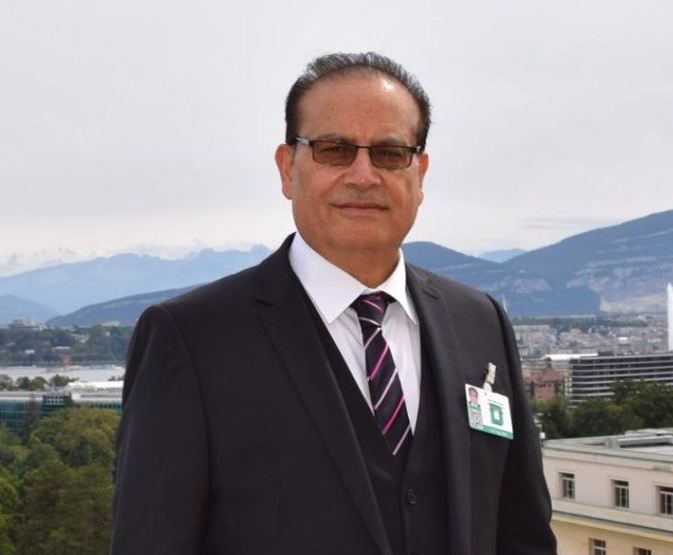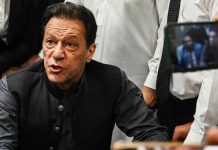Qamar Bashir
Beyond its economic diversification and ambitious infrastructure projects, Saudi Arabia’s meteoric rise as a global powerhouse is increasingly evident through its dynamic diplomacy, international alliances, and calculated geopolitical maneuvers. At the helm of this strategic transformation is Crown Prince Mohammed bin Salman (MBS), whose bold foreign policy vision has redefined the Kingdom’s global posture. Through direct engagement with world leaders, targeted investments, and calculated geopolitical decisions, MBS has transformed Saudi Arabia into a key international actor whose influence now extends far beyond the Gulf region. In February 2025, MBS hosted a trilateral summit in Riyadh with Turkish President Recep Tayyip Erdoğan and Qatari Emir Sheikh Tamim bin Hamad Al Thani form “Gulf-Eurasia Strategic Forum,” a diplomatic initiative focused on defense, energy, and trade coordination across the Middle East and Central Asia—signaling a shift in regional diplomacy led by Saudi Arabia.
Saudi Arabia’s diplomatic relations have undergone a tectonic shift under MBS’s stewardship, notably through high-profile bilateral agreements with global powers. A hallmark of this strategy has been forming economic and political alliances that enhance both regional security and global influence. The Kingdom has strategically positioned itself as a reliable partner to major powers, ensuring its voice carries weight in matters of international policy. In March 2024, Saudi Arabia signed a comprehensive defense and technology cooperation agreement with the United Kingdom. This included a $12 billion joint venture to develop military drones and cybersecurity systems, alongside intelligence-sharing protocols, cementing Saudi Arabia’s growing role as a tech-savvy security partner.
The Kingdom’s financial clout also plays a central role in its rising global stature. Saudi Arabia’s sovereign wealth fund, the Public Investment Fund (PIF), is increasingly being used as a tool of international diplomacy. With multi-billion-dollar investments in key sectors of partner countries, the Kingdom is influencing the flow of capital and technology on a global scale, enhancing both its financial reach and diplomatic leverage. In January 2025, PIF committed $18 billion to renewable energy and semiconductor manufacturing projects in India including a joint solar energy research center and marks a deepening of India-Saudi economic ties in high-growth sectors.
MBS’s personal diplomacy is perhaps one of the most visible markers of Saudi Arabia’s strategic shift. Unlike previous rulers, MBS takes an active role in shaping foreign policy through direct and personal engagement with world leaders. These one-on-one meetings often result in significant bilateral or multilateral agreements that would otherwise require prolonged negotiations. In April 2024, MBS made a surprise visit to Beijing, where he personally negotiated a trilateral energy corridor agreement between Saudi Arabia, China, and Kazakhstan. The deal will facilitate the export of Saudi crude and hydrogen to Central Asia via a newly proposed pipeline route, aligning energy diplomacy with China’s Belt and Road Initiative.
Saudi Arabia’s efforts in conflict mediation have also elevated its diplomatic prestige on the global stage. MBS has strategically positioned the Kingdom as a neutral and trusted interlocutor in international disputes, extending Saudi Arabia’s influence beyond the Middle East and into global conflict resolution. On March 24, 2025, Saudi Arabia hosted groundbreaking peace talks in Riyadh between Russia and the United States, aimed at advancing a roadmap for ending the Ukraine conflict. While a full agreement remains elusive, Riyadh’s neutral hosting and shuttle diplomacy have earned global recognition, reflecting MBS’s growing clout as a mediator between great powers.
Geopolitically, Saudi Arabia has taken an assertive stance under MBS’s leadership. The Kingdom has evolved from a reactive foreign policy approach to one marked by strategic initiative, particularly in regional conflicts and power balances. While this shift has drawn mixed international reactions, it undeniably signifies Saudi Arabia’s intent to lead rather than follow in regional affairs. In June 2024, Saudi Arabia brokered a ceasefire between Sudanese government forces and rebel militias after weeks of civil unrest in Khartoum.
One of the boldest moves by MBS in recent years has been recalibrating Saudi Arabia’s relationship with Israel. Previously unimaginable, these diplomatic engagements have introduced a new dynamic into Middle Eastern politics, challenging decades-old narratives and alliances. The approach balances normalization efforts with continued support for Palestinian statehood—carefully managing both international and domestic expectations. In October 2024, Saudi Arabia allowed direct Hajj flights from Tel Aviv to Jeddah for the first time, enabling over 5,000 Israeli Muslims to attend the pilgrimage. While official diplomatic recognition remains pending, this practical cooperation reflects a significant warming of relations.
Saudi Arabia has also aligned itself with key global initiatives on climate action and sustainability. Recognizing the urgency of environmental challenges, the Kingdom has adopted an approach that integrates its economic goals with international environmental responsibilities. These efforts aim to reframe the Kingdom’s image from a fossil-fuel state to a clean energy innovator. At COP29 in Dubai in December 2024, Saudi Arabia pledged $10 billion to a newly launched “Green Hydrogen for the Global South” fund. This fund, co-sponsored with Germany and Japan, aims to support green hydrogen projects in Africa and Southeast Asia and represents a major shift in Saudi Arabia’s international climate leadership.
Cultural diplomacy has become another key pillar in MBS’s international strategy. Through strategic investments in global entertainment and sports, Saudi Arabia is not just opening itself to the world—but also exporting its image abroad. These efforts serve both soft power ambitions and economic goals related to tourism and global branding. In February 2025, Saudi Arabia signed a multi-year hosting deal with the Ultimate Fighting Championship (UFC), bringing major international MMA events to Riyadh and Jeddah.
Lastly, energy remains a crucial instrument of Saudi Arabia’s global influence. While the Kingdom pursues diversification, it continues to leverage its dominance in oil production to shape global markets. Through OPEC+ leadership, Riyadh ensures that its decisions reverberate across global inflation rates, industrial costs, and national budgets worldwide. In January 2025, Saudi Arabia led an OPEC+ decision to maintain oil production cuts, keeping Brent crude prices above $90 per barrel amid global economic uncertainty.
Under MBS’s vision, Saudi Arabia’s global emergence is not an accidental byproduct of wealth but a carefully executed strategy rooted in diplomacy, financial acumen, environmental foresight, and cultural projection. Every foreign engagement, investment decision, or diplomatic maneuver underlines a deeper ambition—to redefine Saudi Arabia as not just a participant in the international system but a rule-setter in it.
Qamar Bashir
Press Secretary to the President (Rtd)
Former Press Minister at Embassy of Pakistan to France
Former MD, SRBC
Macomb, Detroit, Michigan











